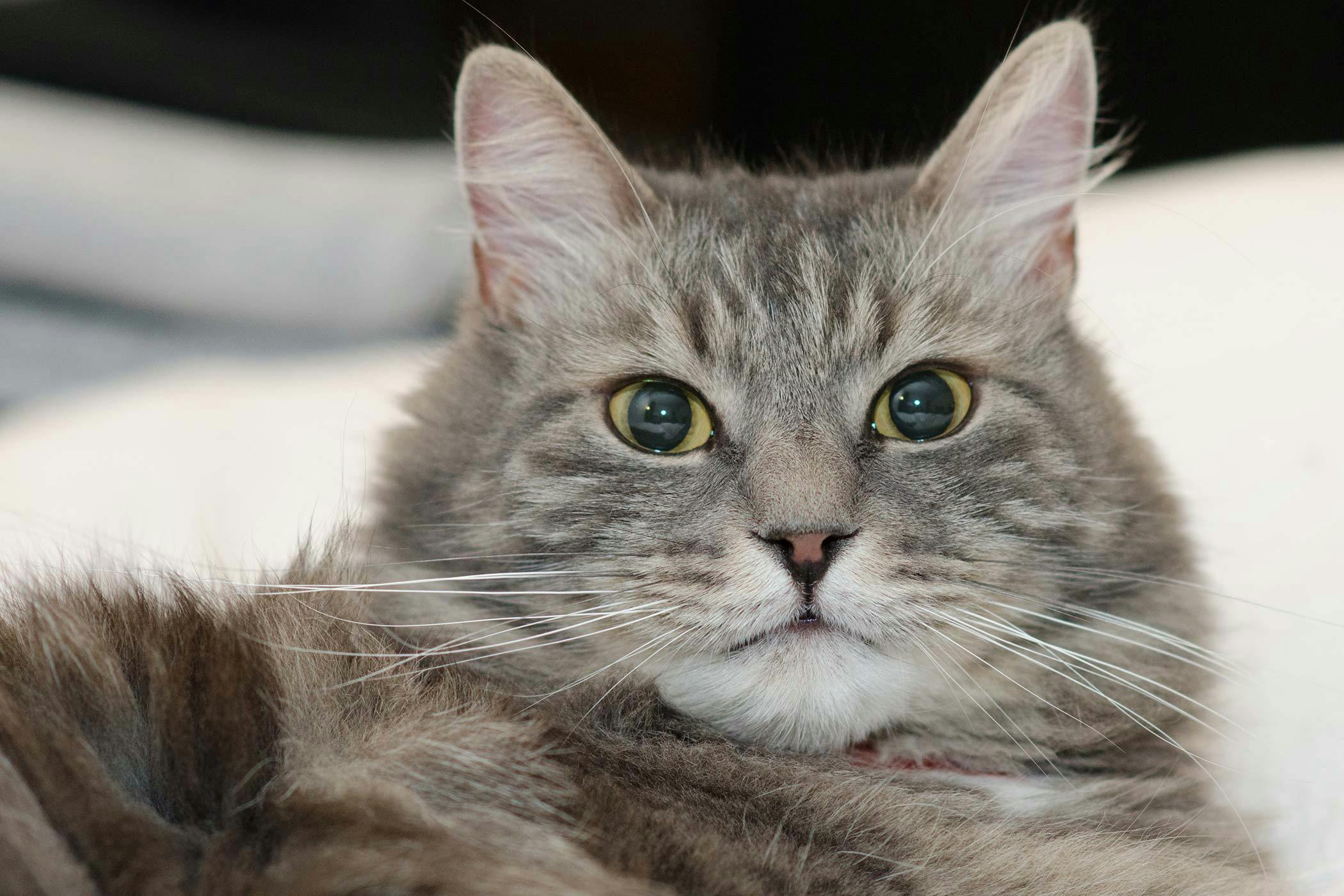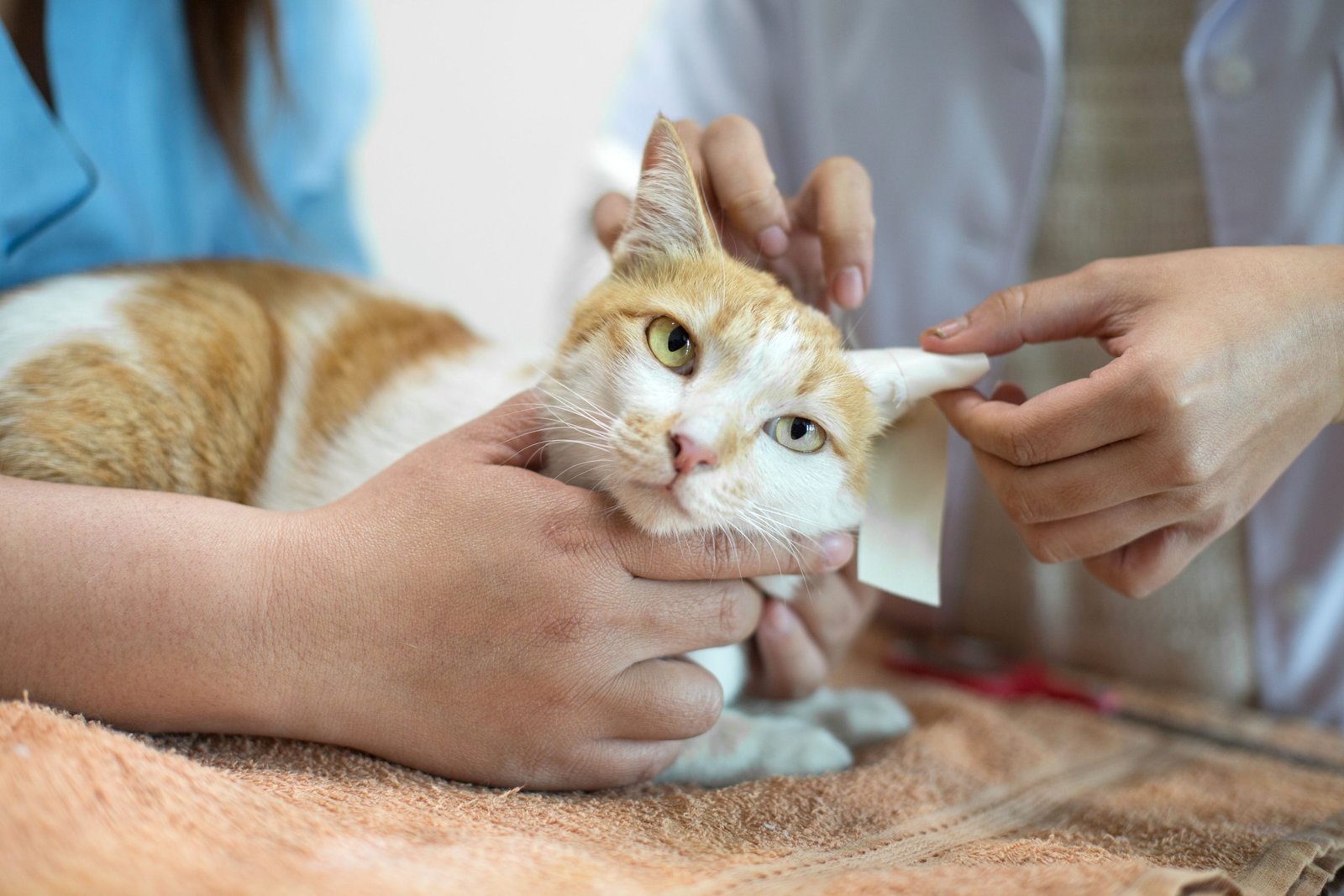Neurological disorders in cats include epilepsy, vestibular disease, herniated discs, cognitive disorder, feline hyperesthesia syndrome, brain tumors, encephalitis, hydrocephalus, and spinal cord disorders. Cats with neurological problems may show signs such as refusing to use the litter box, changes in behavior and interaction, and altered gait and balance.
These disorders can be caused by factors like trauma and age. It is important to recognize the early warning signs, which may include headaches, loss of sensation or coordination, impaired mental ability, and memory loss. Neurological damage can manifest as paralysis, muscle weakness, seizures, and altered consciousness.
To ensure the well-being of your cat, it is crucial to seek veterinary diagnosis and treatment for any neurological issues.

Credit: wagwalking.com
Understanding Neurological Disorders In Cats
Neurological disorders in cats refer to conditions affecting the nervous system, including the brain, spinal cord, and nerves. These disorders can occur due to various factors and can have a significant impact on a cat’s overall health and well-being.
Neurological disorders in cats can be caused by a range of factors, including:
- Genetic or hereditary factors
- Trauma or injury to the head or spine
- Infections, such as encephalitis or meningitis
- Tumors or growths in the brain or spinal cord
- Metabolic disorders
- Vascular disorders, such as strokes
It’s important to recognize the common symptoms of neurological disorders in cats, as early detection and treatment can improve their quality of life. Some of the common symptoms include:
- Changes in behavior or personality
- Altered coordination or balance
- Weakness or paralysis in one or more limbs
- Seizures or tremors
- Loss of vision or hearing
- Difficulty with litter box use
- Head tilting or circling
If you notice any of these symptoms in your cat, it’s important to consult a veterinarian for a proper diagnosis and appropriate treatment.
Diagnosing And Treating Neurological Disorders In Cats
Neurological disorders can greatly impact a cat’s quality of life, causing various symptoms and affecting their overall well-being. When it comes to diagnosing and treating these disorders, it is crucial to rely on accurate diagnostic procedures, choose appropriate treatment options, and provide effective management and supportive care.
Diagnostic Procedures For Neurological Disorders In Cats
Proper diagnosis is the first step in effectively treating neurological disorders in cats. Veterinary professionals employ various diagnostic procedures to determine the underlying cause of the neurological symptoms. These procedures include:
- Neurological Examination: A thorough evaluation of the cat’s reflexes, gait, posture, and overall neurologic function.
- Magnetic Resonance Imaging (MRI): An advanced imaging technique that provides detailed images of the cat’s brain and spinal cord.
- Cerebrospinal Fluid Analysis: A procedure to analyze the fluid surrounding the brain and spinal cord for abnormalities.
- Electroencephalogram (EEG): A test that records the electrical activity of the brain, helping to identify any abnormalities.
- Blood Tests: An important tool to rule out other potential causes and assess the overall health of the cat.
Treatment Options For Neurological Disorders In Cats
Treatment for neurological disorders in cats depends on the specific underlying cause and symptoms. Some common treatment options include:
- Medication: Prescription medications, such as antiepileptic drugs or anti-inflammatory agents, may be used to manage symptoms and reduce inflammation.
- Surgery: In cases of structural abnormalities like herniated discs or brain tumors, surgical intervention may be necessary to alleviate the condition.
- Physical Therapy: Rehabilitation exercises and techniques can help improve a cat’s muscle strength, coordination, and overall mobility.
- Dietary Management: Specialized diets can support cats with neurological disorders, providing them with the necessary nutrients for optimal brain function.
Management And Supportive Care For Cats With Neurological Disorders
In addition to specific treatments, cats with neurological disorders require ongoing management and supportive care. This involves:
- Regular Veterinary Check-ups: Frequent visits to the veterinarian ensure the condition is monitored and appropriate adjustments to the treatment plan are made if necessary.
- Environmental Modifications: Creating a safe and comfortable environment for the cat, considering their mobility limitations and any sensory sensitivities they may have.
- Pain Management: Implementing pain control measures, such as prescribed medications or alternative therapies, to alleviate discomfort.
- Behavioral Support: Providing behavioral enrichment and mental stimulation to engage the cat’s cognitive abilities and promote overall well-being.
By incorporating proper diagnostic procedures, selecting suitable treatment options, and providing effective management and supportive care, it is possible to enhance the lives of cats with neurological disorders and improve their overall quality of life.
Preventing And Living With Neurological Disorders In Cats
Neurological disorders can significantly affect a cat’s quality of life, causing changes in behavior, movement, and overall well-being. It is important for cat owners to be aware of preventive measures and effective strategies for living with a cat with a neurological disorder. In this section, we will discuss various preventive measures, offer tips for living with a cat with a neurological disorder, and provide guidance on caring for cats with specific neurological disorders.
Preventive Measures For Neurological Disorders In Cats
The good news is that there are certain preventive measures you can take to reduce the risk of neurological disorders in your cat. These measures include:
- Keeping your cat’s living environment clean and free from toxins. Ensure that plants, cleaning products, and other potentially harmful substances are out of your cat’s reach.
- Maintaining a well-balanced diet for your cat, ensuring the right vitamins and minerals are included in their daily meals.
- Ensuring regular veterinary check-ups and vaccinations to detect any potential health issues early on.
- Providing regular exercise and mental stimulation to keep your cat physically and mentally active.
Tips For Living With A Cat With A Neurological Disorder
Living with a cat with a neurological disorder can be challenging, but with the right strategies, it is possible to provide them with a safe and comfortable life. Here are some tips:
- Create a calm and stress-free environment for your cat. Minimize loud noises and sudden movements that may trigger anxiety or worsen symptoms.
- Establish a consistent routine for feeding, playtime, and rest. Predictability can provide a sense of security for cats with neurological disorders.
- Provide plenty of hiding spaces and elevated perches to allow your cat to retreat and observe their surroundings, especially if they experience balance issues or disorientation.
- Consult with your veterinarian to explore medication or therapy options that may help manage your cat’s symptoms and improve their quality of life.
Caring For Cats With Specific Neurological Disorders
Specific neurological disorders in cats require additional care and attention. Here are some common disorders and tips for caring for cats with these conditions:
| Neurological Disorder | Tips for Care |
|---|---|
| Epilepsy | Keep a seizure diary to track frequency and duration. Avoid triggers that may induce seizures. |
| Vestibular Disease | Ensure your cat has a safe, flat surface to walk on. Assist with balance and mobility if needed. |
| Herniated Discs | Limit physical activity and provide a comfortable bed with proper support for your cat’s spine. |
| Cognitive Disorder | Implement a structured routine and provide mental stimulation through interactive toys and puzzles. |
| Feline Hyperesthesia Syndrome | Reduce stress and triggers through environmental modifications. Consult with your veterinarian regarding medication options. |
| Brain Tumors | Discuss treatment options with your veterinarian. Provide comfort and monitor changes in behavior or symptoms. |
| Encephalitis | Follow your veterinarian’s treatment plan and monitor your cat’s condition closely. |
| Hydrocephalus | Consult with a veterinary specialist to determine the best course of action for managing this condition. |
| Spinal Cord Disorders | Minimize physical activity and provide support and mobility aids as needed. |

Credit: www.dutch.com

Credit: www.facebook.com
Frequently Asked Questions Of Neurological Disorders In Cats
How Do I Know If My Cat Has A Neurological Problem?
Signs of a neurological problem in cats include changes in litter box behavior, altered interactions with their owner and others, and difficulty maintaining balance. Other symptoms may include headaches, loss of sensation or muscle strength, memory loss, and impaired coordination.
Common neurological disorders in cats include epilepsy, brain tumors, and cognitive dysfunction. If you notice any of these signs, it is important to consult a veterinarian.
What Are The Early Warning Signs Of Neurological Deterioration?
Early warning signs of neurological deterioration may include persistent or sudden headaches, changes in vision or double vision, loss of feeling or tingling, weakness or loss of muscle strength, memory loss, impaired mental ability, and lack of coordination.
What Is The Most Common Neurological Disorder?
The most common neurological disorders include epilepsy, Alzheimer’s and other dementias, strokes, migraines, multiple sclerosis, Parkinson’s disease, neurological infections, brain tumors, and trauma-related disorders.
What Are The Symptoms Of Neurological Damage?
The symptoms of neurological damage can include paralysis, muscle weakness, poor coordination, loss of sensation, seizures, confusion, pain, and altered levels of consciousness.
Conclusion
Neurological disorders in cats can greatly impact their quality of life and well-being. It is important for cat owners to be aware of the early warning signs, such as changes in behavior, litter box habits, and gait. Common disorders include epilepsy, brain tumors, and cognitive dysfunction.
If you suspect that your cat may have a neurological problem, it is crucial to consult with a veterinarian for proper diagnosis and treatment. By staying vigilant and proactive, you can ensure the best possible care for your feline companion.

